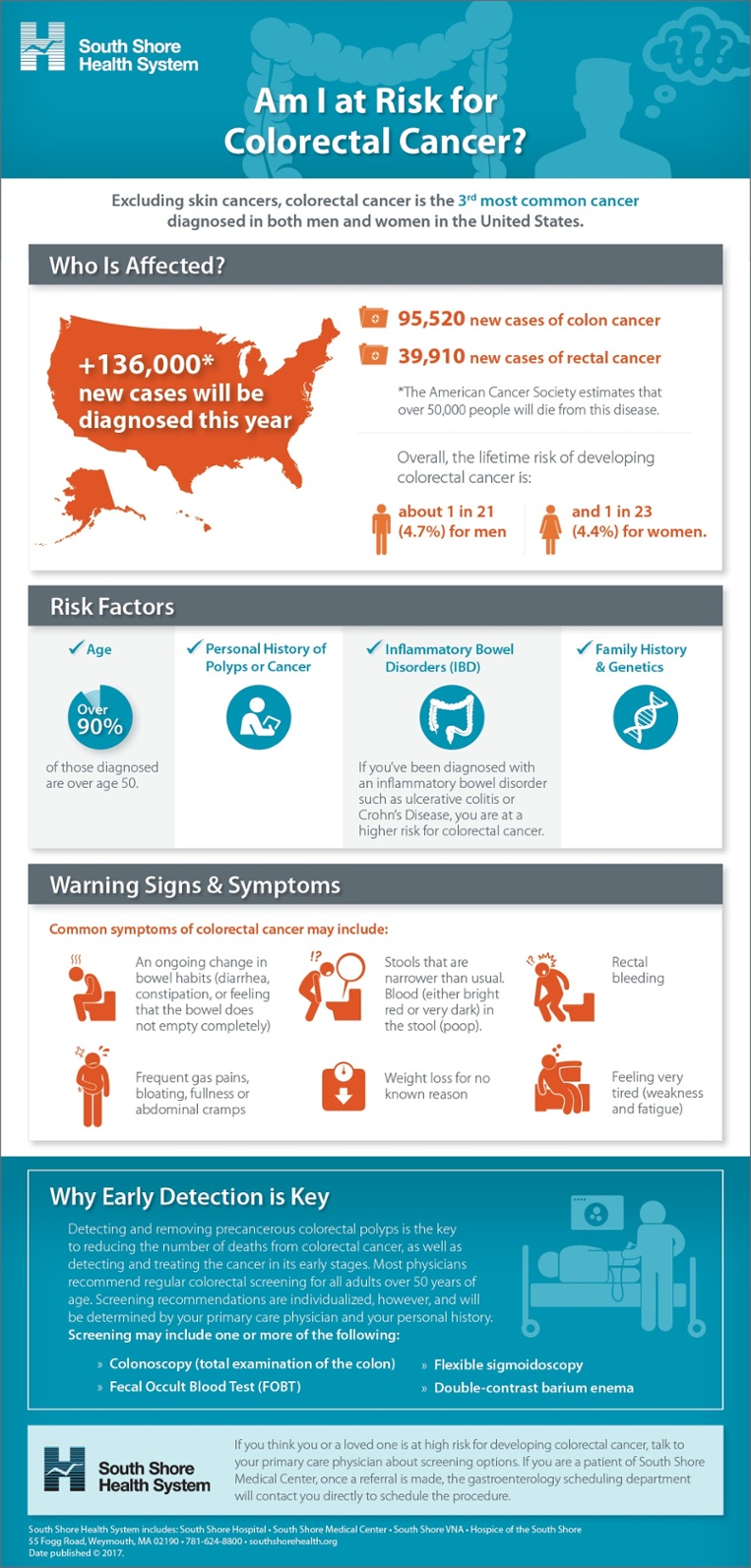The Lowdown on Colorectal Disease and Screenings (Infographic)
Author

South Shore Health
Not unlike the all too familiar “birds and bees” conversation we may have had with our parents growing up, discussing colons and rectums with our physicians can seem less than comfortable for many. Our primary care physicians; however, are often the first to introduce us to the importance of screening exams—even screenings that take place in those embarrassing places.
“I feel strongly about being proactive with my patients about preventive health through encouraging everyone to undergo recommended cancer screenings,” said Khalil Alleyne, MD, primary care physician at South Shore Health. “In the case of colonoscopies, starting too soon, for example, doesn’t improve survival and could even place you at risk for complications over your lifetime. So instead, the conversation with your physician should begin by discussing when the best time is to start for you.”
Colorectal cancer is a cancer that starts in the colon or the rectum. These cancers can also be named colon cancer or rectal cancer, depending on where they start—but are often grouped together because they share many common features.
As we age, we are more likely to grow polyps which have the gene changes that turn normal tissue into cancer. When found at an early stage, polyps can be removed during a colonoscopy to prevent disease. The physician uses a scope to view the inside of the colon to look for polyps, some of which will develop into cancer. When found at an early stage, polyps can even be removed during a colonoscopy to prevent disease.
Most physicians recommend regular colorectal screening for all adults over 50 years of age. Yet according to the American Cancer Society, it is estimated that roughly only half of the people eligible for a colon cancer screening get one. Screening tests for colorectal cancer can save 30,000 lives each year.
“Since colorectal cancer often shows no symptoms in its earliest stages, proper colorectal screening for your individual case is vitally important because it could save your life,” said Dr. Alleyne.
To learn more about colorectal cancer and whether you should talk to your primary care doctor about scheduling a screening, please see the infographic below. Help us spread the word by sharing this post.
Author

South Shore Health








